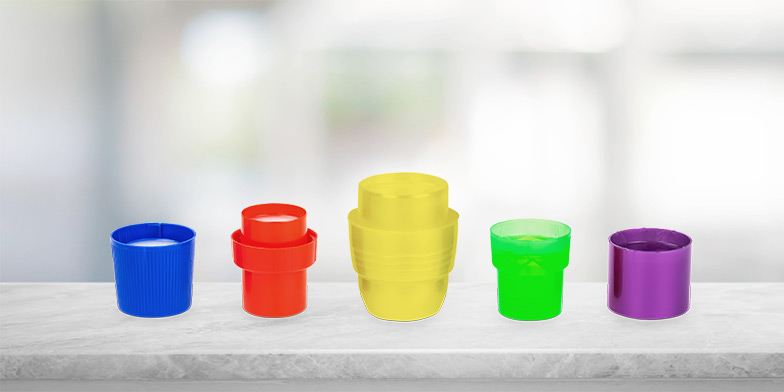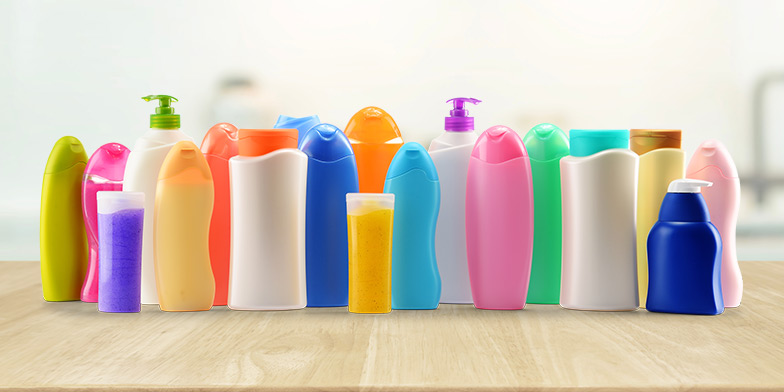2019 Trend Report: The future of rigid plastic
May 06, 2019 by Milliken ChemicalPlastics and rigid packaging play a defining role in the consumer’s everyday interactions; whether that is in the cosmetics they apply, how they maintain a healthy body, or how they clean and organize their home. In any home, workplace or industry, you will find that the majority of items—whether it is food or supplies or even other plastic items—is wrapped or packaged in some form of reinforced plastic or rigid packaging. Plastic packaging companies are trying to stay ahead of the demand when it comes to implementing the latest innovations and technologies.
Emerging economies boost growth in rigid plastics market
The consumption of plastics and packaging is an ever-evolving process that is driven by an array of factors, such as advances in technology, rapid urbanization, technological developments, an increase in the demand for natural products, and a need for reusable and fully recyclable products. Traditionally made rigid plastic materials such as plastic bottles, containers, jars, trays, tubs and pots are facing competition from—or in some cases are being superseded by—flexible plastic products. Innovations like flexible plastic packaging present new challenges for the industry. The growth of flexible packaging has forced the industry to rethink its approach to its products.
According to a recent market forecast report, global rigid plastic packaging consumption will rise at an annual rate of 3.7% from 52.9 million tonnes in 2017 to 63.4 million tonnes in 2022. The same report states that materials used to produce plastic packaging are forecasted to grow across the same period at an annual rate of 3.9%.

New innovations in plastic packaging brought on by food waste directives
In response to directives, such as the European Union’s urgent call to halve food waste in the union by 2025, plastic manufacturers have invested heavily in the research and development of smart, active and intelligent rigid plastic packaging solutions that counteract any possible leakage or spoilage issues. This need for a reliable, environmentally friendly, economically efficient way of producing food—packaged sustainably—has become one of the most pertinent issues of our time.
The food industry has been one of the early adaptors of flexible plastic solutions such as stand-up pouches. These plastic pouches, which can contain nuts, ready meals, rice, sauces, snacks and vegetables, have become more commonplace in consumers kitchens. For the average consumer, these stand-up pouches have many benefits: they are resealable, reusable, use less material, save cupboard space, weigh less, and for a society increasingly on the move, save time cooking. For the plastics industry, flexible packaging provides significant reductions in packaging costs, materials use and transport costs.
Flexible plastics remain strong competition for rigid plastics manufacturers
In response to the challenge of flexible plastics, rigid plastic manufacturers have increased research and development budgets to create more innovative and customizable products. These products display effective active packaging technologies such as antifungal, antimicrobial, antioxidant, ethylene and oxygen scavenging properties. They have also been shown to improve existing barriers to fouling by air and gas and can, in some instances, double the shelf life of the products concerned. For example, currently, a large number of plastic containers and packaging include freshness indicators, time-temperature indicators and various elements of traceability technology.

Push for fully-recyclable plastic packaging
Over the past few years, rigid plastics companies have taken a smarter and more sustainable approach to how they package their products to make plastic packaging more recyclable. Brand owners, manufacturers and retailers are aware of the public’s demand for fully-recyclable plastic packaging and various governmental ordinances requiring the production of more environmentally friendly materials that have a less impactful presence on the environment. This demand, combined with high product demand from agricultural, cosmetics, home care, and pharmaceutical sectors, has led to the redevelopment of the plastic packaging process.
Plastics and packaging manufacturers are continually investigating sustainable plastic packaging alternatives such as biodegradable and compostable bioplastics, biopolymer solutions, and interpolymer substitutions. In the industry, there is a shift away from petroleum-based plastics to developing fully recyclable packaging substitutes which utilize more recyclable components. There have also been significant advances in packaging processes, including blow molding, custom moldings injection molding, thermoforming and form-fill-seal packaging. The whole supply chain now benefits from products that provide consumers with intelligent solutions.
In an increasingly competitive market, the future of the rigid plastics industry lies in the hands and actions of the consumer, and how the industry continues to evolve in relation to their needs. Convenience, efficiency, end-user customizability, safety and sustainability, are the driving forces when it comes to customer product satisfaction. Regardless of the wide-ranging production processes implemented by rigid plastics companies—be it injection molding, thermoforming, blow molding or injection blow molding—an optimal progressive production process needs to be achieved so that the supply chain benefits from production to the end user. If the rigid plastics industry is to continue to be at the forefront of innovations in the food and beverage, healthcare, household and personal care sectors, it must continue to develop cost-effective, environmentally conscious, safe and sustainable rigid plastic packaging that benefits end-user applications.
In accordance with an industry-wide commitment to reduce our carbon footprint, Milliken Chemical will continue to identify future developing trends in rigid plastics, along with opportunities and technologies in the marketplace, to ensure we are producing environmentally friendly and sustainable products for our customers for years to come. At Milliken, we will maintain our position as the polypropylene, polyolefin, plastic additives supplier of choice, by continuing to create plastics that improve the lives of our customers and transform the impact our products have on our environment.
